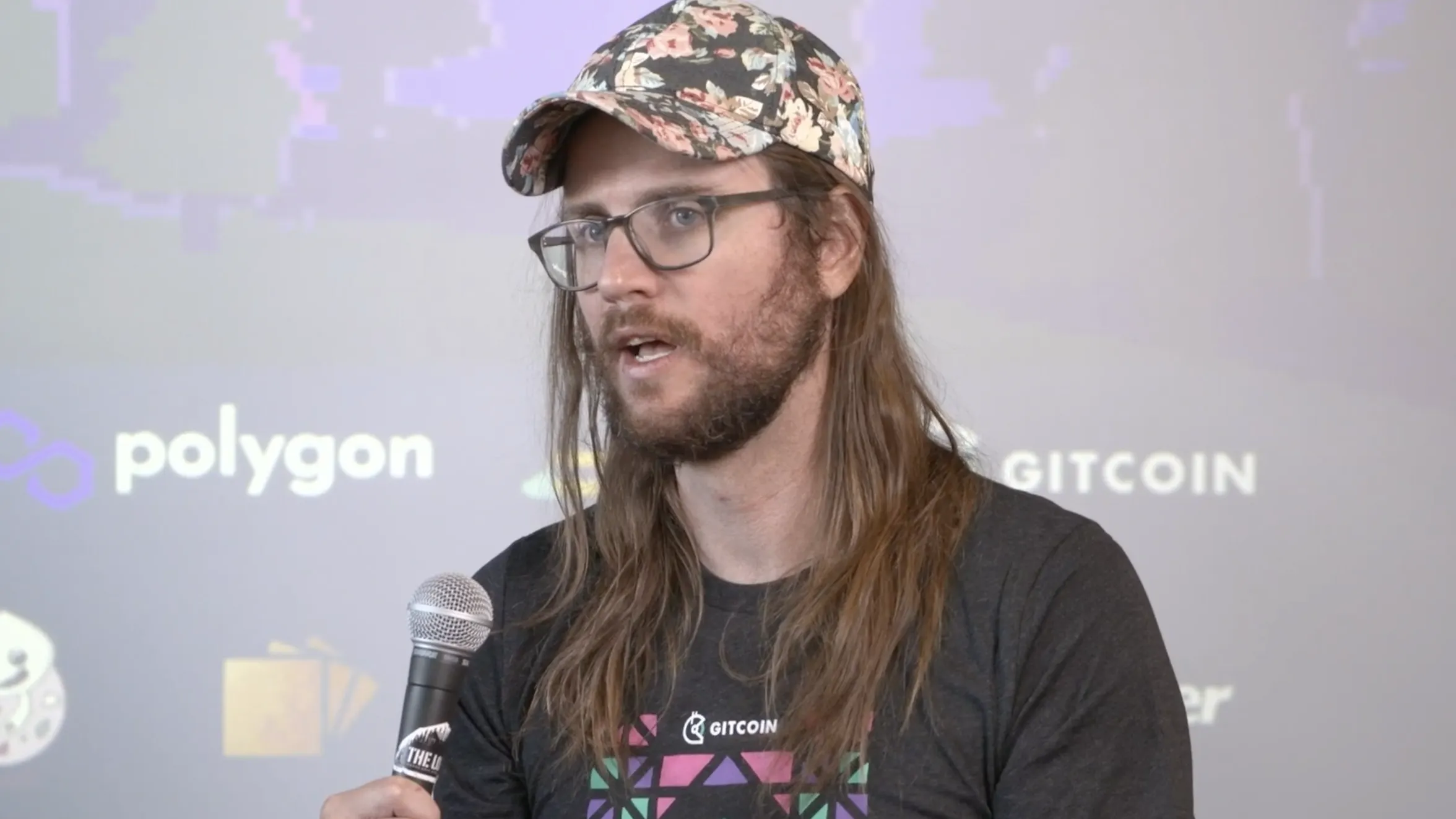Gitcoin co-founder Kevin Owocki, who stepped away from the open-source funding platform last June, announced on Tuesday that he plans to return to the project.
However, he signaled that his upcoming work on Gitcoin will be different from his previous role. Co-founded by Owocki in 2017, the Consenys-funded startup fully transitioned to a DAO last year. (Disclosure: ConsenSys Mesh is one of 22 investors in Decrypt.)
Gitcoin is an organization that connects members of online communities, and it funds the development of open-source software through Gitcoin Grants. Several decentralized projects, including the exchange Uniswap, began as Gitcoin Grants before becoming prime examples of projects built on Ethereum using smart contracts that serve the public good.
According to Owocki, his new role will boil down to fostering better alignment between those involved in Gitcoin. That includes harmonizing those who are focused on the project’s Web3 ecosystem elements with people who participate in Gitcoin’s governance process.
“My role is to be a network catalyst for all of them—to help everyone synthesize information across the network and grasp the whole elephant of what Gitcoin is,” he told Decrypt. “To be clear, I’m not dictating. I’m bottoms-up gathering intelligence and helping them synthesize their roadmap together.”
Short for decentralized autonomous organization, a DAO is a business structure in which control is spread out across participants instead of being concentrated from the top down. DAO members typically use governance tokens to vote on proposals that decide a project’s direction.
When Owocki said goodbye last year, he described it as a “bittersweet” moment. While the project had been his “baby” for five years, Gitcoin had matured to the point where “leaving the house” was warranted, he said in a blog post at the time.
To say that Gitcoin is moving back in with Owocki—or vice versa—isn’t necessarily an accurate reflection of the shift, Owocki said, saying the metaphor has grown “a little bit paternalistic.” One recent takeaway, he noted, though, is that “DAOs and founders have a complicated relationship.”
In order to better understand his situation, Owocki said he’s conversed with Kain Warwick, the founder of Synthetix, a platform on Ethereum for minting and creating synthetic assets. Warwick has cut ties himself from the project three times only to return, highlighting the complexity.
“Just knowing that there are other founders out there that are kind of in this boomerang relationship with their DAOs, I think, is really interesting,” Owocki said, adding he and Warwick recently taped a podcast on the topic.
As part of its push toward becoming a DAO, Gitcoin’s governance token Gitcoin (GTC) was launched in May of 2021. The token has climbed over 30% to $1.06 over the past week, according to CoinGecko, and spiked as high as $1.43 on Sunday.
Since it was introduced in 2019, the Gitcoin Grants initiative has pooled over 3.8 million donations to distribute $50 million in funding toward “public goods,” per its website. Within the context of Gitcoin, public goods can look like open-source code or real-life endeavors.
Aside from conflict-of-interest concerns related to DEI bonuses that projects could receive as part of a funding round earlier this year, per DefiLlama News, Gitcoin has had to navigate other recent controversies.
Gitcoin faced allegations of “greenwashing” last month after the protocol partnered with Shell on an initiative to develop open-source climate solutions. As part of the agreement, the fossil fuels giant said it would donate $500,000 to Gitcoin’s Grant Program and sponsor a hackathon to take place later this year.
Owocki acknowledged the situation in an extensive thread on Twitter not long after the tumult began and said the issue could be summarized as “growing pains” for the DAO. He also underscored the idea that what’s viewed as a public good is relative to the community it serves.
Owocki told Decrypt on Tuesday that he planned to return to Gitcoin before the platform’s partnership with Shell became contentious. “I was planning on returning well before the Shell controversy,” he said.
As Gitcoin welcomes one of its co-founders back home, Owocki’s presence will likely be felt, but the product of his work should capture how far the project has come in terms of its overall shift toward decentralization, he explained.
“Being more towards the edge of the network as opposed to being the center of the network is something we’re going to see with my return to Gitcoin,” Owocki said. “I think that I can play a role in helping people see that it's not a company anymore. It's a decentralized ecosystem.”

